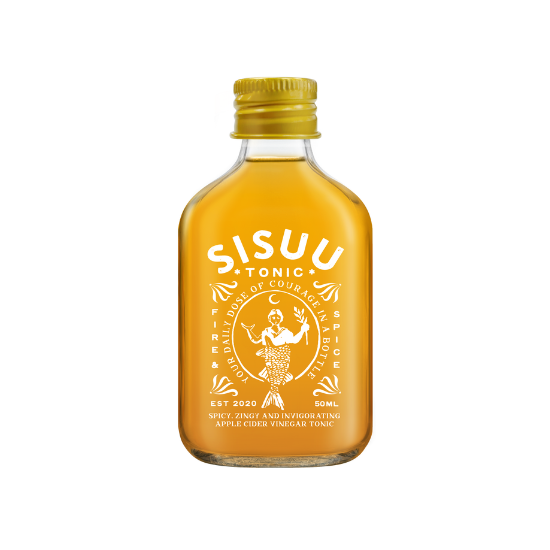Immersing yourself in cold water for therapeutic benefit is widely practiced today by athletes and others. If you don’t have your own ice bath, taking a cold shower after you workout might be a familiar tactic. But does a cold shower really produce the same results?
Is a cold shower as good as an ice bath?
An icy cold shower can feel really refreshing. As a method of cryotherapy, however, for most people it might not quite add up. This is because immersing yourself in a pool of icy cold water can potentially more effectively lower your core body temperature faster.
The water in a designed ice bath can reach as low as 3 degrees. This provides the potential for added benefits over having a cold bath from your tap or a cold shower.
A meta-analysis done in 2015 found that cold water immersion can lower your body’s core temperature faster than simply resting in cool surroundings.
Vagus Nerve Stimulation
Are you looking for a natural and healthy way to destress? An ice bath can be a great way to reach this goal. Research has shown that cold temperatures can stimulate your vagal nerve. This nerve helps control your heart, lungs, and digestive tract. Stimulating your vagus nerve has been shown to help you relax and destress. While a cold shower could activate your vagus nerve, immersing your body in an ice bath is potentially more effective as you can better cover your neck area and abdomen where this nerve extends. Because an ice bath can also reach lower temperatures than a cold shower, it can potentially more rapidly and effectively activate this important nerve center. The result can be a fuller sense of relaxation and elimination of stress. Baths have long been used to take your worries away and an ice bath could go even further.
Workout Recovery
Ice bath vs cold shower- which is best for workout recovery? There’s no debating that a cold shower can feel cool and refreshing. While there are few studies that have compared the effects of a cold shower vs taking an ice bath after a workout, the science does show that cold water immersion works for recovery.
A study done in 2011 discovered that cyclists who underwent a rigorous training session had less soreness in their muscles after soaking in cold water for ten minutes. In addition, a study done in 2016 found similar results. Cold water causes your blood vessels to constrict, reducing blood flow to the area that’s sore. This can temporarily reduce any inflammation. Many athletes swear by cold water immersion and ice baths after a workout to help with their recovery, in addition to getting enough fluids, stretching, rest, and healthy eating.
Fat Loss
Researchers are still looking into how weight loss might be related to exposure to cold temperatures but things look promising. Some studies have already shown that ice water immersion can speed up your metabolic rate. This is the rate at which you burn calories. When you sit in ice water, your brown fat is activated to work harder at keeping you warm.
Studies have shown that the more you expose yourself to cold temperatures, the better your brown fat becomes at doing its work when activated. In this way, soaking in ice water can spur your body to burn more calories. The key to weight loss with cold water immersion is to not eat more to compensate for the calories being burned. By eating a regular diet full of healthy food and the right amount of caloric intake, you can potentially burn extra calories by ice bathing. This may cause you to lose weight.
Restful Sleep
Because an ice bath can help activate your vagus nerve for increased relaxation, many who engage in ice bathing report better sleep. Athletes who find that an ice bath decreases their muscle soreness may also experience more restful and comfortable sleep.
A solid night’s sleep has been shown to be essential to muscle recovery. While you sleep, your body is engaged in muscle recovery via protein synthesis and the release of human growth hormones. Not getting enough sleep or sleep deprivation over the long term has been linked to an increased chance of disease. Anything that can help you get a good night’s sleep, including an ice bath, can potentially lead to better workout recovery and overall improved wellness.
Other Benefits of an Ice Bath
While serious mental health conditions always require professional diagnosis and treatment, some people say ice bathing improves their mental health. Some ice bathers have reported feeling less anxiety and symptoms of depression. While the science is still out on this one, it could be related to the vagus nerve. Since cold is known to activate the vagus nerve and thereby promote relaxation, it could be that ice baths can reduce your symptoms of anxiety.
Some people also swear by ice baths to boost their immune system. In a Dutch study, people who practiced meditation, cold water immersion, and deep breathing produced more anti-inflammatory chemicals and fewer pro-inflammatory cytokines when they were exposed to a bacterial infection.
How to Take an Ice Bath
When beginning an ice bath routine start slowly and ease into it. You don’t need to begin at extreme cold temperatures. Work down to them. Listen to your body. If you feel uncomfortable, get out. Begin by soaking for ten seconds or more and work your way up to a few minutes. Never ice bath for anywhere near 20 minutes as this can be dangerous for your body. As a rule of thumb, it’s a good idea to aim for around 2 to 5 minutes. Focus on your breathing, quiet your mind and enter.
Conclusion
Cold therapy comes with many potential and known benefits when done right. Always consult with your doctor before beginning an ice bath routine as it’s not for everyone and in some people with certain health conditions it can be dangerous. For most people, however, ice bathing brings improved mental and physical health in a natural relaxing environment that’s difficult to beat!
Main Benefits of Cold Showers
• Can provide a boost of energy
• Slightly lowers body temperature
• Improves stress levels
Main Benefits of Ice Baths
• Increases resilience
• Lowers body temperature
• Can stimulate fat loss
• Improves stress levels and stimulates vagus nerve
• Improves skin health and immune system
• Full submersion
Ice baths and cold showers both have benefits, and can both be incorporated into your weekly routine.








